
I hope you all read the previous post for the Sources of MRCOG Part 2 exam (points 1 to 5) and started accumulating the information.
Many had queried regarding the textbooks they should read for the exam. So here are my thoughts on the books that you might find useful and be continuing from point 6 below.
6. Recommended Textbooks:
Now there is NO hard and fast rule as to which book to follow. You can follow what your institution suggests you do, especially if you are also doing a Master degree/MD.
RCOG resources page has listed down the recommended textbooks. You can always check them out.
Now, you need to understand the difference between reading a textbook and a guideline.
A textbook will usually give you a depth of knowledge about the disease condition, while guidelines will help you to manage such a patient.
A textbook sometimes can be outdated where the management is concerned, but there’s nowhere else that you could get the sufficient depth of knowledge to become a specialist other than from textbooks.
Newcomers on a mission to sit for MRCOG, must follow a textbook or two.
-
Dewhurst’s Textbook of Obstetrics and Gynaecology –
We followed this in our institution. Quiet vast as any textbook is, thus time-consuming. Nevertheless, I managed to read about half of the book. And I started reading this from the 1st year of my Master’s Programme and the programme is 4 years long. If you have the book you may refer it for necessary topics.
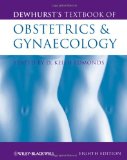
-
Nelson Piercy for Medical disease in pregnancy –
I read selected topics from this. Read the common disease first, uncommon ones like a headache in pregnancy etc, do it along with questions.
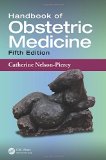
- There are other recommended books like De Swiet’s Medical Disorders in Obstetric Practice. I didn’t actually use this as I found Catherine very simple to read and I complimented the handbook with TOG & OGRM articles.
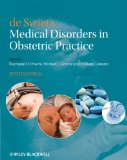
-
Obstetrics and Gynaecology – An evidence-based text for MRCOG – by David M Luesley, Philip N Baker.
Very useful. I read the PART THREE – page by page. Gynaecology, Pelvic floor and lower urinary tract dysfunction, Lower genital tract, Gynaecological Oncology, are given very nicely. But my colleague read the Obstetric part as well and found it useful. As I gathered the obstetric knowledge from other source and the topics were overlapping, I did not read the Obstetrics part.
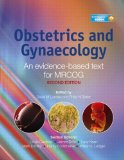
-
Oxford Specialty Training: Training in Obstetrics & Gynaecology – By Ippokratis Sarris, Susan Bewley, Sangeeta Agnihotri –
Topics are short and precise. Lots of pictures and illustrations. Loved the book. Almost read all of it, then decided to stick to other sources for some topics.
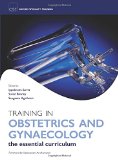
Anyways, these are the books I dabbed my hands on.
The end goal is “Necessary information must be obtained”- so whichever mode you chose, choose well and use wisely. When topics overlap, making notes from multiple sources is a useful technique.
Decide what you will be using for revision in the end. Don’t keep a heap load of stuff for final revision.
This is the end of the second post, I will write my third post of this section next. Look out for that.
p.s. for those who missed, here’s MRCOG part 2 recommended reading – post 1
Dr Anjana from where we should study operative procedures pre op and post op care
Hi, any operative gynecology book would do. But read TOG articles for particular procedures.
thank u so much. jazakallah….
from where we got OGRM… is it free online?
You are welcome. I have answered this question so many times before.
but nevertheless, you can try it in Wiley online. I don’t think it is completely free. But try searching… better obtain from friends who are giving the exam.
Mam i need solved pass paper of 2015 & 2016
How can i get??
Hi, it is not possible to get the real exam past papers. Only model questions can be tried.As the exam paper is exclusively property of college.
Thanks for such great help. You r doing great deed
Glad to help. Let me know what you would like to know more on.
Thank you very much ,Dr Anjana.
You are welcome 🙂
Hi anjaana … Thanxs for all the guidenence you r providing us with. I ve a question about TOGS . How many past TOGS do we need to study for MRCOG . & what books u advise to pracyice EMQS & SBA. I dont know how to cover clinical governence & audit part of exam.
Hi, you will need to do about 2 -3 years of past TOG. Did you read my blog posts on TOG- I have written in detail about them.
My next post will be on the practise books. So stay glued…. Audit is usually needed for the OSCE. There is a paper on audit in the RCOG website. I have written the exact location in my previous post.
Thank you so very much.i appreciate for your time helping us.you are great motivation.i got your all points.thanks again
Glad to help. Let me know whether you need to know about anything more in particular.
thank you so very much Dr Anjana ..you are doing a great job
You are most welcome. Let me know whether you need any specific topic to be discussed.
I have 4th adittion of Catherine nelson is it ok?and I have done my obs from EBM and gynae from dewhurts is it ok?I have not found oxford specialiyy training in my country what I do?
That’s should be ok I guess.. I read the 4th edition too, but as the latest edition is out, I’m bound to recommend the latest one.
It does not matter as long as you have acquired your knowledge from a text book. Well OST was quite helpful. Try to acquire it, but don’t be discouraged if you do not. You will come across the knowledge from other sources as well.
Hiii.thank you soo much.
Ur such a help n inspiration
May God bless u.
Hey thanks Fozia 🙂
I mean EMQS on labour.which source can make us able to handle them.they are seems to be hard sometimes so.
To handle EMQ on labour, which are usually hard I agree- Do EMQs on Labour- I mean the more you practise, the more you will understand what the UK practise requires you to do.
NICE guidelines explain you on labour- but no guidelines can tell you exactly what to do in each scenario.
Be thorough with CTG (NICE). In each CTG change they advice the next step. So you need to apply that in questions.
Don’t jump to CS as a conclusion. That is the last resort- usually. But need to do CS if that’s the safe option- have to balance – need to be a safe doctor. Think like a UK trainee, forget your usual practise.
Thanks dr Anjana you have solved the problem in deciding what books we have to be on our hand as reference.can you please guide about topics we need to cover from high risk pregnancy and shaws.and I am much more worried about lab our related questions I mean source for obstretics.can you please guide on them I will appreciate you.
Hi, you are welcome.
You basically need to read ALL the topics- pertaining medical disease in pregnancy. Any pregnancy complicated by a medical disorder tends to deviate from normalcy, as they need special attention. Be it thyroid disease , heart disease, DM, Heamatology, even things like MI ,Stroke and Headache etc. As questions have come on these. But read the common ones first- what I mean as common is, major disorders. No way you would go into that exam hall not having read DM or Heart disease. For questions like headache, MI, Stroke, – do questions. Know what you need to know by doing questions rather than reading so much details on them.